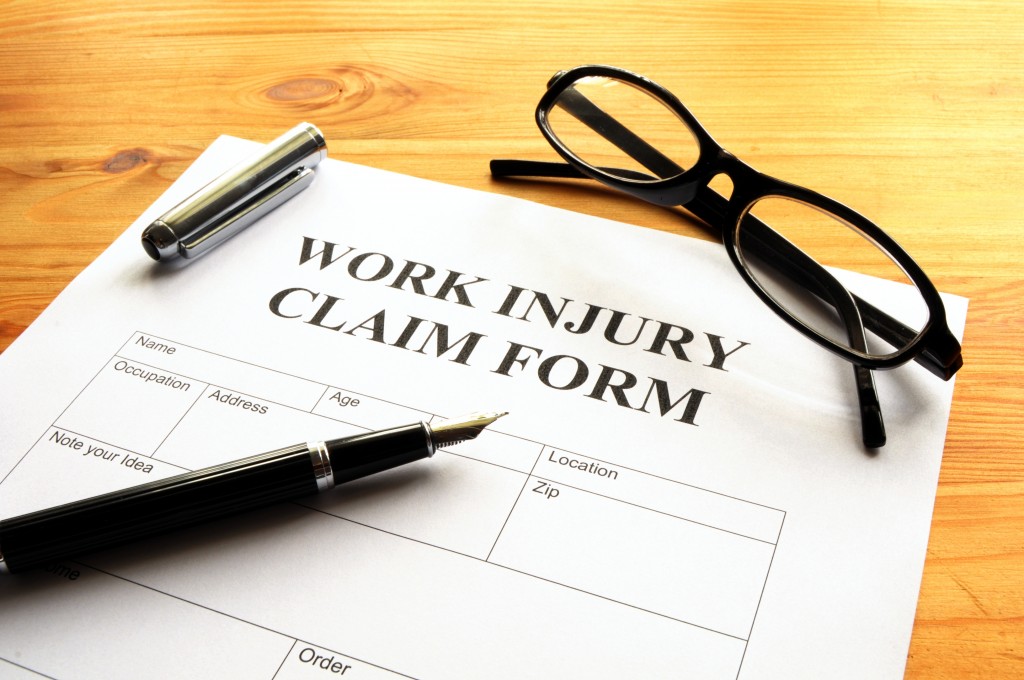Have you suffered an injury at work or because of work in California? If so, then you may be entitled to receive compensation for it. If the injury sustained has led to a disability, not only do you get compensated for the medical expenses incurred, but you also get time off. A disability may be defined as any sort of mental or physical impairment that-
- Significantly hinders essential activities like walking or breathing, or
- Compromises an essential bodily function, like a neurological disease or a respiratory illness
In this article, we will discuss the worker compensation payments that you’re entitled to receive if you’ve incurred a work-related injury in California.
I’m Injured, Now What?
The first step is to inform your employer that you’ve been injured. Your employer should have you complete a DWC-1 form, after which your employer’s insurance company starts paying the costs needed for medical treatment.
An employer has 90 days to accept or deny your claim, in the meantime, they must provide medical treatment in an amount of up to $10,000. In addition to this, if the insurance company fails to deny the claim after 90 days, then it is assumed that an employee is entitled to receive benefits.
These benefits encompass all things that are needed to mitigate the damage done by the injury and include medical supplies, doctor’s consultation costs, and prescription medicines. They even include sessions with an acupuncturist and a chiropractor.
Moreover, if your employer has a medical provider network (an MPN), then you’re mandated to go to a doctor within that framework. However, this isn’t necessary in case you’re receiving emergency treatment or when you already have a designated primary health provider.
Another thing to be kept in mind is that prior to receiving any treatment recommended by your personal health provider, you may have to prove that it’s necessary. This process is called a utilization review and isn’t necessary when the employee in question is getting emergency treatment.

Temporary Disability Benefits
In the event you are completely unable to work because of your injuries or your employer can not accommodate the modifications provided by your doctor you are entitled to temporary disability payments.
The idea of temporary disability is that it is meant to support you when you’re unable to meet the specifications set by the workplace and, as a result, have suffered financial loss. As a result, you’re entitled to two-thirds of the average wage you earn in a week. The average weekly wage is a sum total of the amount earned before tax deduction. However, there are certain minimum and maximum limits for the same, and these are usually revised every year.
For the year 2022, since 1st January, these limits have been set as $230.95 and $1539.71 per week. Another factor that you must note is that temporary disability benefits can be continuous or intermittent. This means that if you’ve had a flare-up of an injury despite going back to work, you can continue to get them.
The maximum amount of temporary disability you can receive is 104 weeks. This requirement can also be done away with in case the injury is of a serious or chronic nature, like HIV, lung disease, or hepatitis.
Permanent Disability Benefits
Permanent Disability kicks in when the authorized medical practitioner determines that the limitations due to the work-related injury are permanent in nature. Your treating doctor or a Qualified Medical Examiner will issue a report indicating that you have become permanent and stationary or have reached maximum medical improvement. In that report, the doctor will indicate your percentage of disability. That percentage of disability is adjusted for your age and occupation resulting in a final percentage of permanent disability. The state of California has a chart that will indicate the corresponding dollar amount of your disability. Permanent disability payments are made in the amount of $290 per week or less if you were a low-wage earner.
Supplemental Job Displacement Benefit
If you’ve got a partial permanent disability, and your employer hasn’t offered any alternate/modified work within 60 days of the medical report, then a supplemental job displacement benefit is applicable. This benefit is characterized by a payout of up to $6,000, which can be used to pay for vocational training or certification needed for a new, viable line of work.
Final Thoughts
What if the insurance company refuses to honor your claims and pay any of the benefits that you’re entitled to? You have the right to challenge this decision, and you’re also entitled to a penalty in case the insurance company unreasonably delays in payment of the benefits.
Unfortunately, the process of dispute resolution and settlement of claims is an egregious one, which may need a professional Workers’ Compensation Lawyer’s help. So, it’s recommended you speak to an experienced attorney like The Morris Law Group to help guide you through the process.

